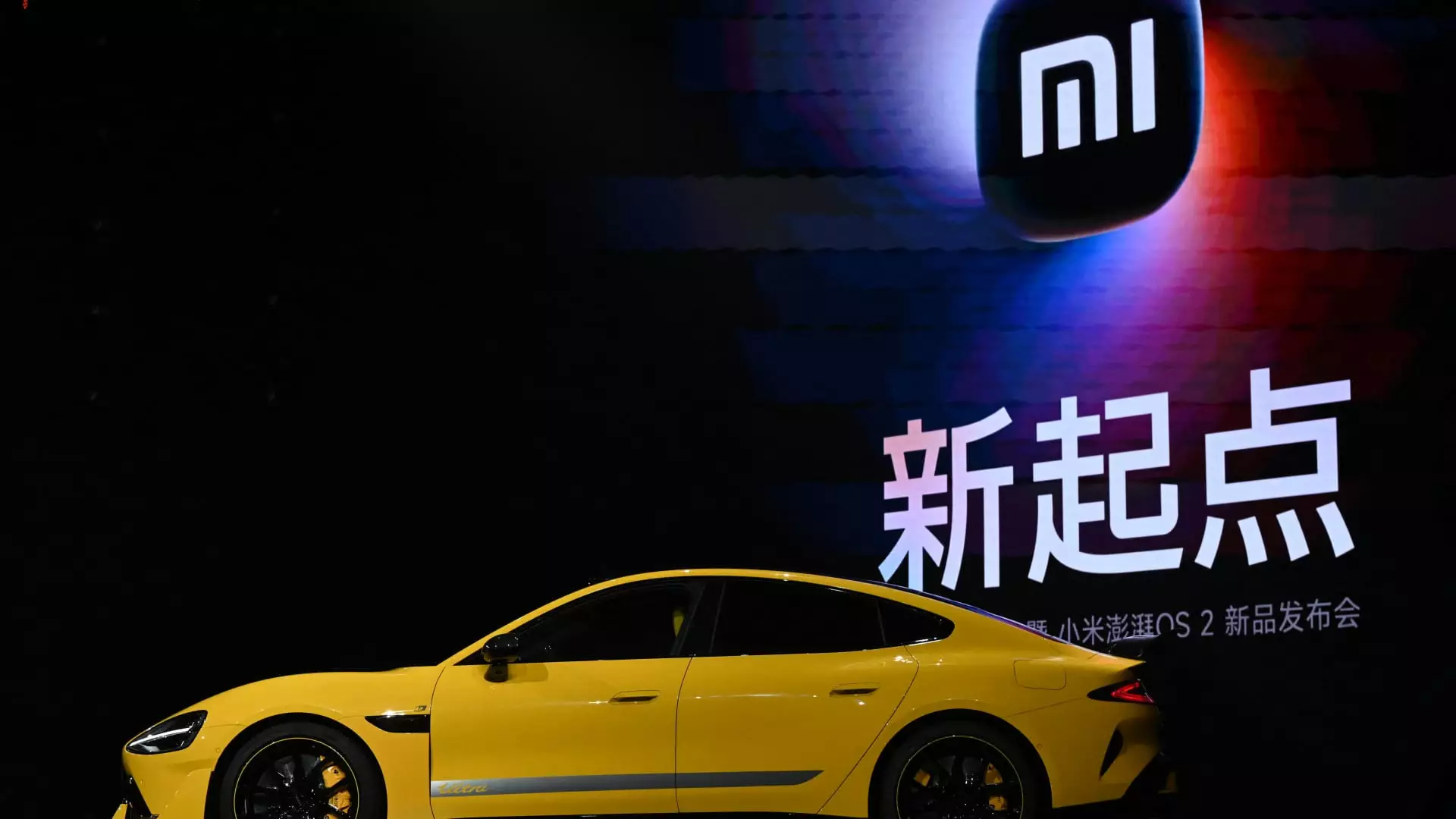As the electric vehicle (EV) market experiences rapid evolution, few players have managed to capture attention as effectively as Xiaomi. The Chinese tech giant, traditionally recognized for its smartphones and home appliances, is now making significant strides in the automotive sector. The company announced on Tuesday that it has successfully delivered over 20,000 units of its SU7 electric vehicle in October alone, signifying a substantial increase in production capacity as it enters an already saturated market.
Xiaomi’s foray into electric vehicles commenced in 2021, a strategic pivot that displayed the company’s intent to diversify its revenue streams. The ambitious venture included the establishment of a dedicated manufacturing plant to streamline the production process. The SU7, which debuted in late March, was tailored to cater to the growing demand for affordable EVs in China. Priced approximately $4,000 below Tesla’s Model 3, the SU7 positioned itself as a competitive alternative, effectively challenging the established players.
Tesla’s strategic price reduction of about $2,000 shortly after the SU7’s launch has underscored the intensity of competition in the EV marketplace. Xiaomi’s swift delivery numbers, amassing over 75,000 units to date, demonstrate its commitment and ability to scale production efficiently—attributes that typically take traditional automakers several years to achieve. For instance, while Xpeng and Nio took six years to surpass the production milestone of 100,000 cars, Tesla itself needed 12 years to reach that threshold.
The current environment for electric vehicles in China is marked by fierce competition, illustrated by the performance of various brands. Xpeng, for instance, reached its own record deliveries of over 20,000 vehicles in September. Meanwhile, Nio has faced challenges in maintaining its volume despite competitive models. Zeekr, a brand created by Geely, has also made headlines by achieving over 100,000 vehicle production in just 18 months. This landscape indicates a rapid increase in consumer interest and demand for electric vehicles, affirming the urgency for companies like Xiaomi to establish a solid foothold in this evolving market.
Analysts are optimistic about Xiaomi’s trajectory in this competitive arena. Brian Tycangco from Stansberry Research has noted that the recent delivery figures position Xiaomi as a formidable contender in the largest EV market globally. He highlights that Xiaomi’s gross profit margins for its electric vehicle segment in August were on par with those of its competitors, an encouraging sign as production ramps up.
Amid these promising delivery figures, Xiaomi has also teased its high-end sports version, the SU7 Ultra, with a price tag starting at 814,900 yuan ($114,304). The rapid pre-order uptake—over 3,600 in just 10 minutes—demonstrates sustained consumer interest and brand trust. This version of the SU7 is propelled by its performance capabilities, including reported achievements on the iconic Nurburgring racetrack in Germany. Such milestones are likely to entice prospective buyers seeking a blend of performance and luxury.
In light of these developments, financial analysts have raised their forecasts for Xiaomi’s future deliveries, estimating that the company could roll out 250,000 vehicles in the next year. Moreover, this optimistic outlook has led to an increase in the company’s stock price target, signaling confidence in Xiaomi’s ability to sustain momentum.
Looking ahead, Xiaomi’s ambition in the electric vehicle sector appears to be just beginning. While the company currently focuses on the Chinese market, industry experts suggest that international aspirations might become plausible over the next few years, following the development of domestic successes. With Xiaomi’s established reputation, robust production capability, and strategic pricing, it is well-positioned to challenge both domestic rivals and international players in the evolving global EV landscape.
Xiaomi’s decisive move into the electric vehicle market reflects its adaptive strategy in a rapidly changing automotive landscape. The success of the SU7, coupled with ambitious growth plans, illustrates the potential for Xiaomi to emerge as a noteworthy competitor in the global EV market. As companies vie for dominance in an increasingly electrified future, Xiaomi’s journey will be one to watch.

